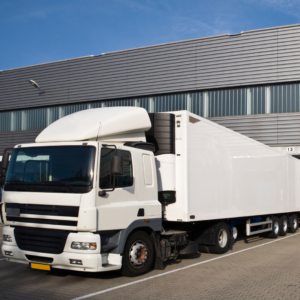
Why Truck Freight Transportation Dominates the Logistics Landscape
Trucking remains the most utilized freight mode in the U.S., moving over 70% of the nation’s freight tonnage. By 2035, it’s projected to handle nearly 14 million tons annually, solidifying its position as a key player in logistics. Trucking’s flexibility ensures timely and secure delivery to various domestic or international freight shipping destinations.
- Accessibility: Trucks can navigate urban areas and reach remote locations, unlike rail or air cargo.
- Diverse Shipment Options: Trucking efficiently meets diverse business needs from full truckloads (FTL) to partial loads (LTL).
- Reliability: Advanced GPS tracking and scheduling ensure timely deliveries.
Breaking Down Transportation Cost Calculation
Transportation cost calculation is pivotal for budgeting and maximizing profitability. It involves analyzing multiple factors:
- Freight Weight and Volume
Freight companies calculate costs based on weight, volume, and density. Palletized shipments, especially LTL shipping, often reduce costs by optimizing space.
- Distance and Routes
Shipping costs increase with longer distances and complex routes. Efficient route planning and real-time tracking can minimize delays and reduce costs.
- Freight Type
The nature of the goods—hazardous materials, temperature-controlled items, or oversized loads—impacts pricing. Specialized freight services often come at a premium.
- Service Levels
Choosing between expedited, standard, or economic services affects the cost. LTL shipping, for instance, offers cost savings by sharing truck space with other shipments.
What Is LTL Shipping and Why It Matters?
Less Than Truckload (LTL) shipping is ideal for businesses that don’t require a full truckload. It consolidates shipments from multiple companies, offering significant cost savings.
Advantages of LTL Shipping:
- Cost-Effective: Share transportation costs with other shippers.
- Eco-Friendly: Reduced carbon footprint by maximizing truck space.
- Scalability: Perfect for small-to-medium businesses with varying shipment sizes.
LTL shipments require precise packaging and documentation to ensure seamless delivery. Improper palletization can lead to delays and added costs.
How Freight Quotes Simplify Decision-Making
A freight quote is an estimated cost that logistics companies provide based on shipment details. Tools like online freight calculators and API-integrated systems have revolutionized quoting by offering:
- Instant Comparisons: Evaluate multiple carrier options and prices instantly.
- Transparent Pricing: Get a breakdown of transportation costs, including pickup, transit, and delivery fees.
- Customizable Services: Tailor quotes to specific needs, such as door-to-door delivery or customs clearance.

Partnering with freight companies can simplify your logistics operations. Many providers now offer digital platforms for seamless booking, tracking, and management.
Key Features of Modern Freight Services:
- Door-to-Door Shipping: From pickup to delivery, ensuring hassle-free logistics
- Real-Time Tracking: GPS-enabled tracking systems enhance shipment visibility.
- Customizable Solutions: From handling special commodities to offering expedited shipping options.
Companies like ExFreight utilize advanced technology to bridge the gap between traditional and digital logistics, ensuring efficiency and cost reduction.
Building an Efficient Supply Chain
An efficient supply chain revolves around cost control and timely delivery. Truck freight transportation supports these goals by offering:
- Scalability: Adapt to market demands by leveraging FTL or LTL services.
- Cost Optimization: Competitive pricing through consolidated shipments and route planning.
- Reliability: Seamless integration with logistics services to ensure timely deliveries.
For businesses seeking to scale globally, utilizing freight and transport services effectively can unlock new markets while reducing operational costs.

Start exploring freight services tailored to your needs today and transform how you manage transportation costs!




Leave A Comment
You must be logged in to post a comment.